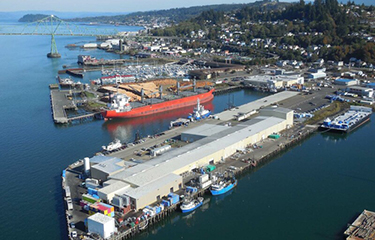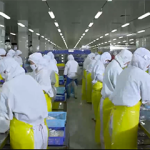Oregon seafood processors, fishermen protest state wastewater permit

Seafood processors and fishermen in the U.S. state of Oregon have mobilized to oppose a wastewater permit plan proposed by the state’s Department of Environmental Quality.
The industry’s fears were aired during a 30 August public hearing on a draft permit recently released for Da Yang Seafood’s Astoria, Oregon, processing plant.
The proposed permit will set “standards that industry wastewater experts agree are impossible to achieve with existing technology,” the West Coast Seafood Processors Association said in a statement the next day.
“Without a path to compliance, not only is Oregon’s seafood industry in jeopardy, but the economic viability of coastal communities is threatened,” it said.
The processing companies point specifically to new requirements for treating wastewater for copper and other metals “that originate from the municipal water supply to levels thousands of times lower than drinking water.”
“Because these metals are not used or produced by the seafood industry, technology does not exist for seafood processors to treat the water to the levels required in the permit,” it said. “No other state – nor any other country in the world – has applied requirements for metals like these to seafood processors.”
Fishing fleet advocates joined in criticizing the proposal at the hearing.
“I sit on the board of a national seafood organization where my colleagues in other states are simply aghast at what DEQ is attempting to do. No other seafood-processing state in the US is forcing seafood processers to comply with such unrealistic rules,” Midwater Trawlers Cooperative Executive Director Heather Mann said. “Requiring water to be magnitudes cleaner than drinking water is simply outrageous and unnecessary. When the technology does not exist to comply with these rules it makes many of us wonder if DEQ is really just interested in eliminating Oregon’s seafood industry.”
Oregon Trawl Commission Executive Director Yelena Nowak said the new rules will force seafood companies to treat wastewater to be cleaner than drinking water.
“Our industry will be in jeopardy if DEQ goes forward with the Da Yang’s draft permit without first addressing processors’ concerns. As it stands right now, this draft permit is unattainable, unworkable, unfair, and it will automatically lead to noncompliance of seafood processors,” Nowak said.
With three weeks left in a public comment period on the draft permit ending 28 September, the industry is steering the public toward SaveOregonSeafood.org, a website set up by the West Coast Seafood Processors Association where people can read about the campaign and submit comments to the DEQ.
“Despite years of persistent efforts by the seafood processing industry to engage in productive conversations, DEQ's responses have been inconsistent, superficial, and devoid of practical solutions,” West Coast Seafood Processors Association Executive Director Lori Steele said. “While the industry has invested extensively in independent research, DEQ's refusal to engage with our technical experts further indicates the agency is rushing to reduce the permit backlog at the expense of doing it right.”
Photo courtesy of Port of Astoria






Share